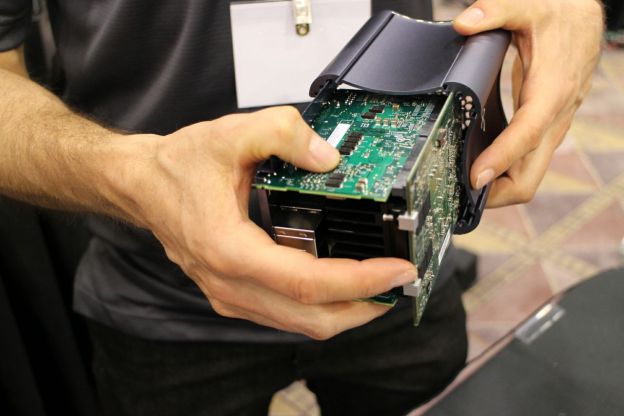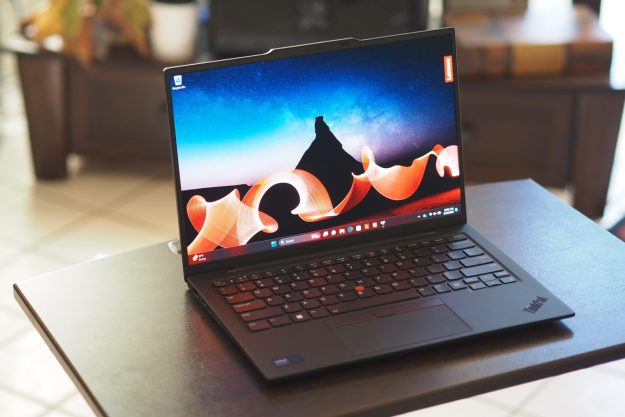 Remember a few years ago when people were able to play Tetris on their cell phones and we all thought it was amazing? If so, feel free to dust off a few old photographs (those pieces of paper that have .jpegs physically printed on them), and go ahead and laugh at your poor, naïve past self.
Remember a few years ago when people were able to play Tetris on their cell phones and we all thought it was amazing? If so, feel free to dust off a few old photographs (those pieces of paper that have .jpegs physically printed on them), and go ahead and laugh at your poor, naïve past self.
Earlier this year at CES, Xi3 went from being a small computer maker to making international news when it announced that its collaboration with Valve had produced a prototype of what has been called the “Steam Box” – a device made specifically to run Steam software on Linux. At least, that was the initial impression.
Valve has since clarified its position, and claims that it is determined to manufacture its own hardware. But Valve remains deeply involved with Xi3, and the modular Piston, based on Xi3’s X7A models, is capable of filling the role. It also does a whole lot more.
The computer is modular, meaning it is easily upgradable. That is one of Xi3’s core tenants: the ability to adapt. It’s versatility is something that defines it and something that the company proved yet again by announcing that its Piston would be both portable and compatible with virtual reality devices. Xi3 wouldn’t say which VR devices, but there is an obvious company to fill that role, even if Xi3 isn’t prepared to discuss that yet..
First, as for the portability, it comes down to the fact that the Xi3 is very easy to power. Where some gaming rigs can suck 500 Watts of power (and even double that for some), the Piston requires just 40 Watts – and that gives it options. At Xi3’s private event at GDC, CMO David Politis suggested that the company is looking at ways to provide a portable power source made specifically for the Piston – possibly through upcoming partnerships – but that it may still be a ways off. The technology to power the Piston on the go is out there though, even if you have to make it yourself.
As for the VR devices, once you have the power situated, the rest is easy. The obvious suspect when it comes to a VR partnership is Oculus VR, makers of Oculus Rift, another impressive product we got our hands on at GDC. Not only is Oculus far ahead of its competitors in its field, the company has also received the blessing of Valve’s Gabe Newell, whose company is among the first to embrace the Oculus technology. Team Fortress 2 is already compatible with the VR headset, and many other games are due to either be adapted or will be released with a driver that’ll offer at least partial VR.
Newell’s involvement with both Xi3 and Oculus makes this potential partnership an obvious fit. Assuming a deal can be reached – or even if there is no deal and Xi3 just makes sure its system works with the VR headset – gaming could look a whole lot different. With a connected controller in one hand and the Oculus Rift resting on your head, you could conceivably walk around with a backpack containing a power source and the Piston and would have the ultimate mobile gaming experience with a dash of virtual reality thrown in for good measure.
However, the biggest problem with the Piston still rests with pricing … at least if Xi3 wants to compete with consoles. Xi3 has started taking pre-orders, and the bundles start at $900. Adding things like portability and virtual reality could help to take the sting off that price tag. Even if the Piston doesn’t do it for you, it’s hard not to stop and marvel at the idea that a technology exists today that makes true virtual reality completely mobile. Take THAT, Tetris.
Xi3 also announced that its Piston would ship with at least three games pre-loaded, but it wasn’t ready to announce those titles. Look for the company to make a big splash at E3 this year and unveil plenty of new details.


